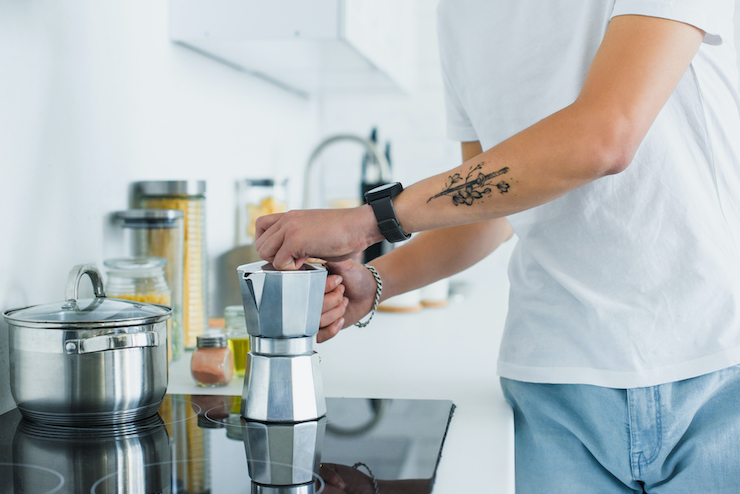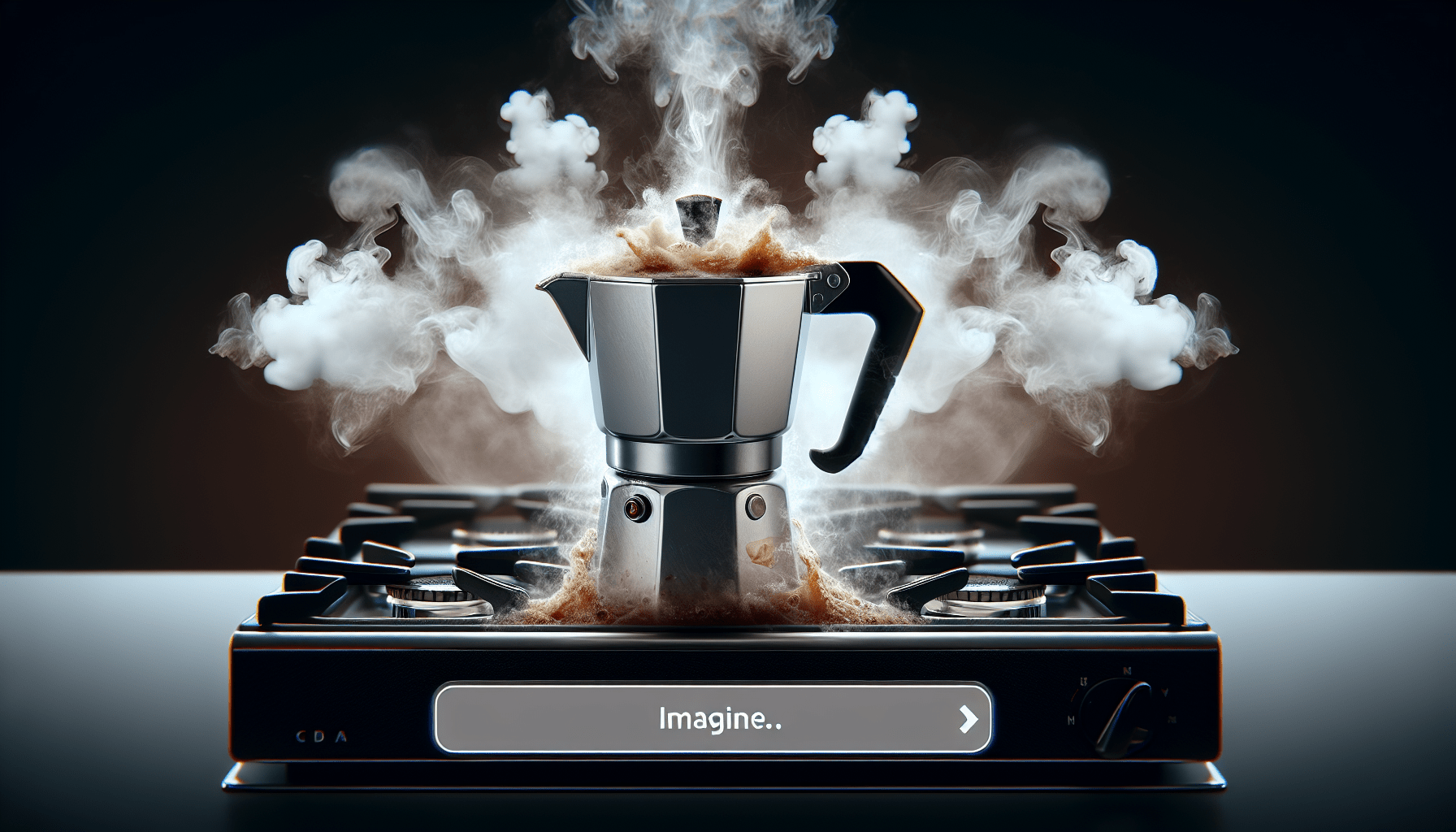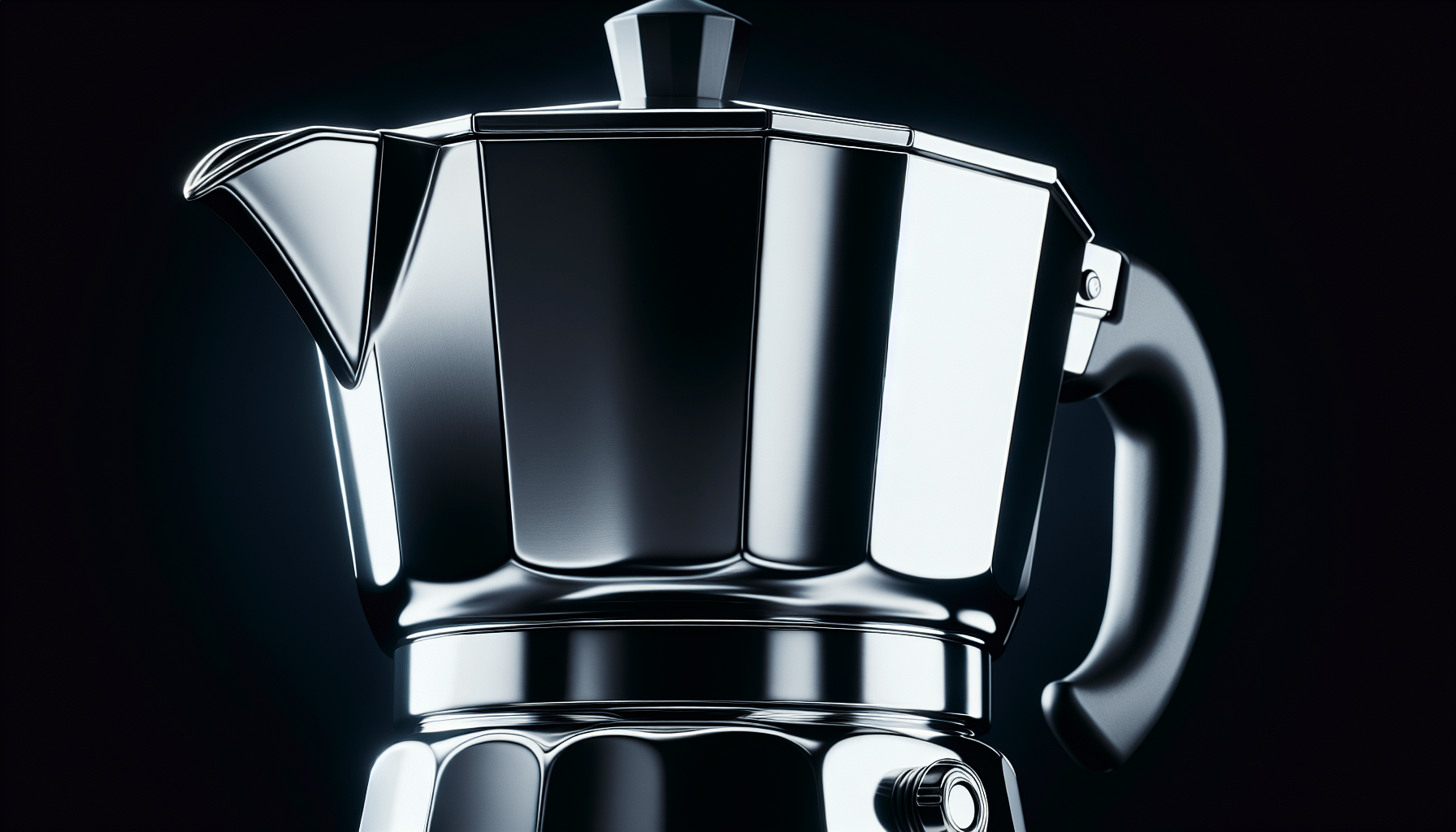If you’re a coffee lover who’s recently switched to an induction cooktop, you might be wondering if your trusty stovetop espresso maker is compatible. Well, the short answer is yes, you can use stovetop espresso makers with induction cooktops! In this article, we’ll explore how these espresso makers work, the benefits of using them on induction cooktops, and some tips to ensure a smooth brewing process. So grab your favorite coffee beans and let’s dive into the world of stovetop espresso!
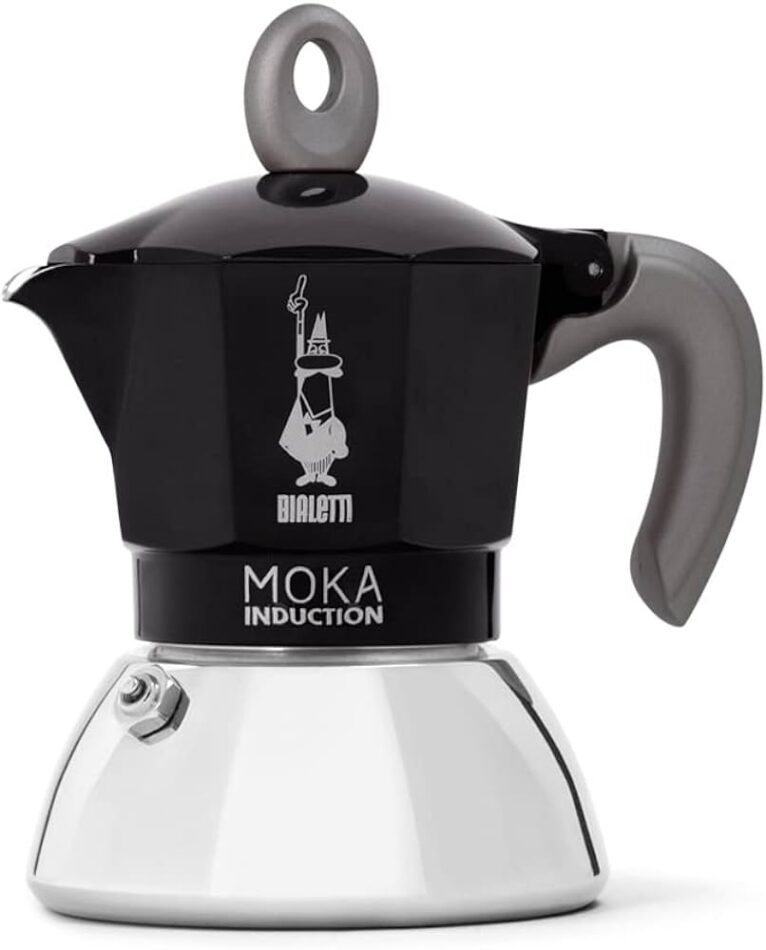
What is a stovetop espresso maker?
Definition of a stovetop espresso maker
A stovetop espresso maker, also known as a Moka pot or a hob espresso maker, is a traditional Italian coffee brewing device. It consists of three main parts: a bottom chamber for water, a middle chamber for ground coffee, and a top chamber where the brewed espresso collects. The pot is placed on a stovetop burner, using heat to create pressure that forces water through the coffee grounds and produces a rich, concentrated espresso.
How it works
When using a stovetop espresso maker, you fill the bottom chamber with water and place finely ground coffee in the middle chamber, which has a perforated filter. As the water in the bottom chamber heats up on the stovetop, steam pressure is generated. This pressure forces the hot water through the coffee grounds, extracting the flavors and oils, and then upward into the top chamber, ready for serving. The result is a strong and flavorful cup of espresso that can be enjoyed plain or used as a base for other coffee beverages.
What is an induction cooktop?
Definition of an induction cooktop
An induction cooktop is a type of cooktop that uses electromagnetic fields to directly heat pots and pans, rather than using traditional heating elements or gas flames. Induction cooktops have a glass or ceramic surface and are becoming increasingly popular due to their fast and precise heating abilities. They provide efficient heat transfer, quick response times, and effective control over the temperature.
How it works
Induction cooktops work by creating a magnetic field when an electric current is passed through a coil of wire underneath the ceramic or glass surface. When a compatible pot or pan made of magnetic material is placed on the cooktop, the magnetic field induces electrical currents in the cookware. These currents then generate heat directly within the cookware, heating the contents inside. By adjusting the strength of the magnetic field, the cooktop can control the level of heat produced, allowing for precise cooking temperatures.
Compatibility between stovetop espresso makers and induction cooktops
Incompatibility due to materials
Most traditional stovetop espresso makers are made of aluminum, which is not magnetic and therefore not compatible with induction cooktops. The magnetic field generated by the cooktop requires pots or pans made of magnetic materials, such as iron or stainless steel, to work effectively. Without a magnetic base, the stovetop espresso maker will not heat up or brew properly on an induction cooktop.
Incompatibility due to heating mechanisms
The heating mechanism of a stovetop espresso maker relies on direct contact with a heat source, such as a gas burner or electric coil, to produce the required steam pressure. Induction cooktops, on the other hand, use electromagnetic fields that heat the cookware directly. As a result, the stovetop espresso maker may not be able to generate sufficient pressure or heat to brew espresso on an induction cooktop effectively.
Using a stovetop espresso maker on an induction cooktop
Possible solutions for compatibility
Although traditional stovetop espresso makers are not inherently compatible with induction cooktops, there are some potential solutions to make them work together. One option is to replace the aluminum stovetop espresso maker with an induction-compatible version, specifically designed with a magnetic base to allow for efficient heat transfer. Another solution involves using an induction adapter, which is a separate magnetic disc that can be placed between the cooktop and the stovetop espresso maker, allowing for the transfer of heat via induction.
Using an induction adapter
An induction adapter is a circular disc made of magnetic material that can be placed on the induction cooktop surface. It acts as an intermediary between the cooktop and the non-magnetic stovetop espresso maker, enabling the transfer of magnetic energy and heat. By using an induction adapter, you can convert the magnetic field generated by the induction cooktop into heat that can be effectively transferred to the stovetop espresso maker. However, it is important to ensure that the adapter is properly sized and compatible with the dimensions of both the cooktop and the espresso maker.
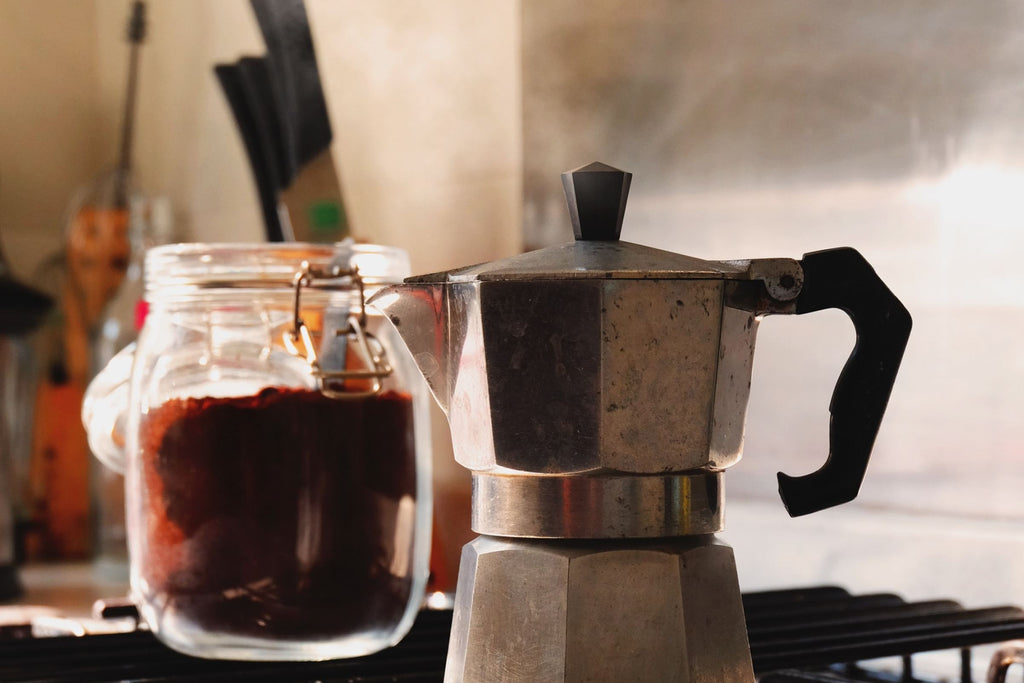
Benefits of using a stovetop espresso maker on an induction cooktop
Energy efficiency
Induction cooktops are known for their energy efficiency. They provide rapid and precise heating, resulting in less wasted energy. When using a stovetop espresso maker on an induction cooktop, the efficient heat transfer allows for faster brewing times and reduces the amount of energy consumed. This can be especially beneficial if you frequently brew espresso or use the cooktop for other cooking tasks while saving on electricity or gas costs.
Faster heating time
Compared to other types of stovetops, induction cooktops offer significantly faster heating times. The electromagnetic fields used in induction cooking quickly generate heat directly within the espresso maker, speeding up the brewing process. This means that you can enjoy your espresso in a shorter amount of time, making your morning routine more efficient and convenient.
Safety features
Induction cooktops often have built-in safety features that make them a popular choice among homeowners. These safety features typically include automatic shutoffs and overheating protection, minimizing the risk of accidents or damage caused by leaving the cooktop unattended or using excessive heat. By using a stovetop espresso maker on an induction cooktop, you can take advantage of these safety features, creating a safer brewing experience in your kitchen.
Considerations before using a stovetop espresso maker on an induction cooktop
Induction cooktop settings
It is essential to be familiar with the settings and controls of your induction cooktop before attempting to use a stovetop espresso maker. Induction cooktops usually offer a range of power levels and temperature settings, which can affect the brewing process. Experimenting with different settings and adjusting the heat intensity may be necessary to achieve the desired espresso extraction and flavor. Taking the time to understand how your cooktop functions will greatly enhance your espresso brewing experience.
Maintenance and cleaning
When using a stovetop espresso maker on an induction cooktop, it is important to follow proper maintenance and cleaning practices. Regularly cleaning the espresso maker and ensuring it is free from coffee residue will prevent any potential damage to the induction cooktop surface. Additionally, it is recommended to clean the induction adapter, if used, to remove any coffee grounds or debris that may have adhered to its surface. Proper maintenance will keep both the stovetop espresso maker and the induction cooktop in good condition for prolonged use.
Potentially voiding warranties
Using a stovetop espresso maker on an induction cooktop, especially with the addition of an induction adapter, may void the warranty of either or both products. It is important to check the manufacturer’s guidelines and warranty information for both the espresso maker and the induction cooktop before attempting to use them together. If using an induction adapter, ensure that it is approved for use with your specific cooktop model, as unauthorized modifications or accessories can impact the warranty coverage.
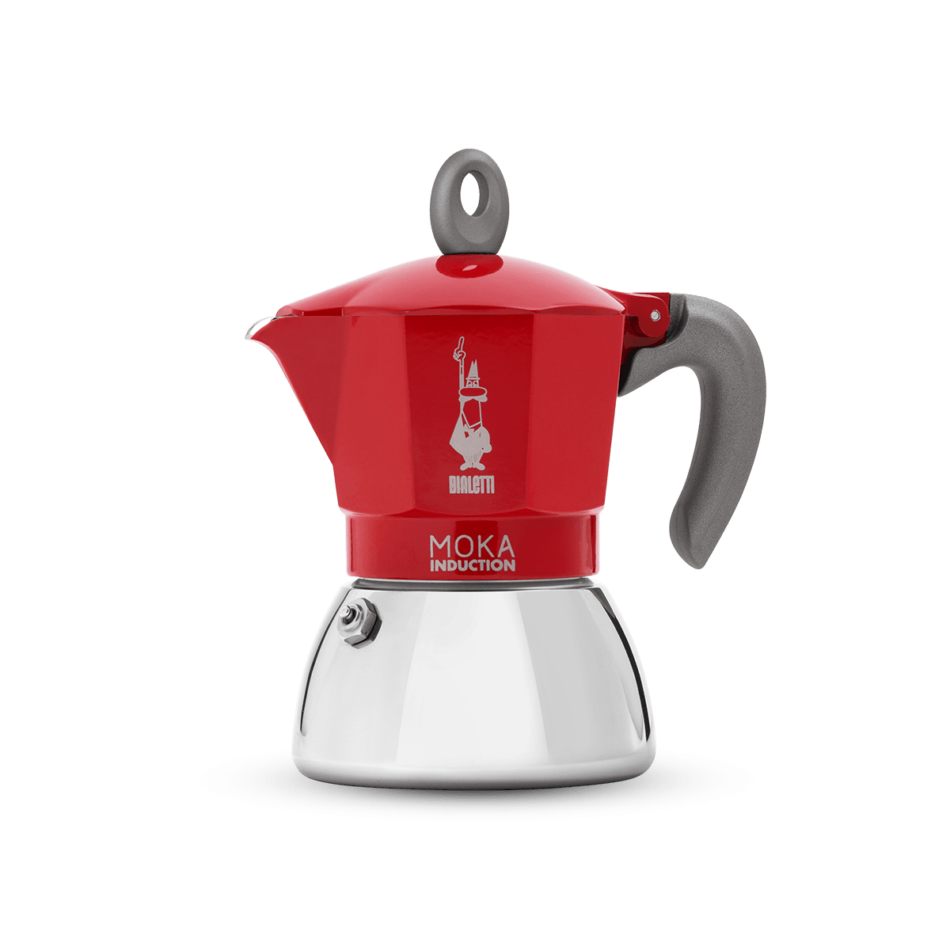
Alternative options for making espresso on an induction cooktop
Electric espresso machines
If you prefer a more automated and hassle-free espresso brewing experience, electric espresso machines are a suitable alternative to stovetop espresso makers. These machines are specifically designed to work with various heat sources, including induction cooktops. Electric espresso machines offer precise temperature control, programmable settings, and the ability to automate the brewing process for consistent results. However, they may require a larger initial investment and take up more counter space compared to stovetop espresso makers.
Induction-compatible stovetop espresso makers
As the demand for induction cooktops has grown, so has the availability of induction-compatible stovetop espresso makers. These espresso makers are specifically designed with a magnetic base, allowing them to efficiently transfer heat from the induction cooktop. Induction-compatible stovetop espresso makers provide the convenience and charm of traditional stovetop brewing, while still being compatible with modern induction technology. Investing in an induction-compatible espresso maker ensures compatibility and optimal performance when brewing espresso on an induction cooktop.
Conclusion
While traditional stovetop espresso makers may not be compatible with induction cooktops, there are solutions available to make them work together. Replacing the espresso maker with an induction-compatible version or using an induction adapter allows for the enjoyment of espresso on an induction cooktop. The benefits of using a stovetop espresso maker on an induction cooktop include energy efficiency, faster heating times, and safety features. However, it is important to consider factors such as cooktop settings, maintenance, and any potential voiding of warranties. Alternatively, electric espresso machines and induction-compatible stovetop espresso makers offer alternative options for making espresso on an induction cooktop. Ultimately, the choice depends on personal preference, convenience, and the desired brewing experience.
